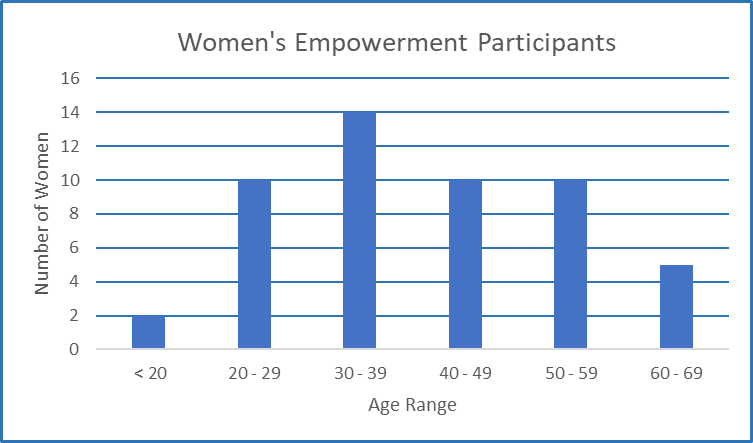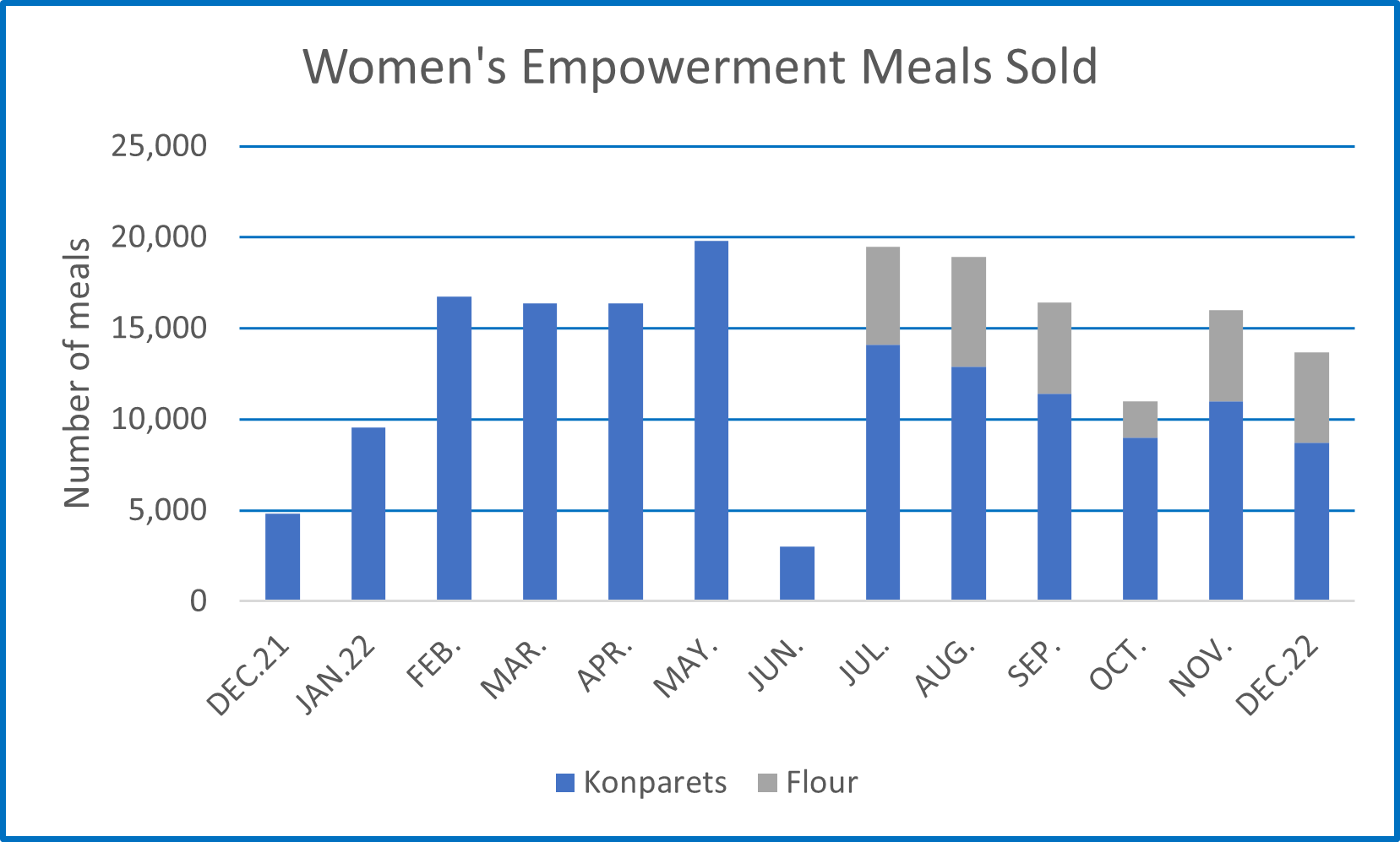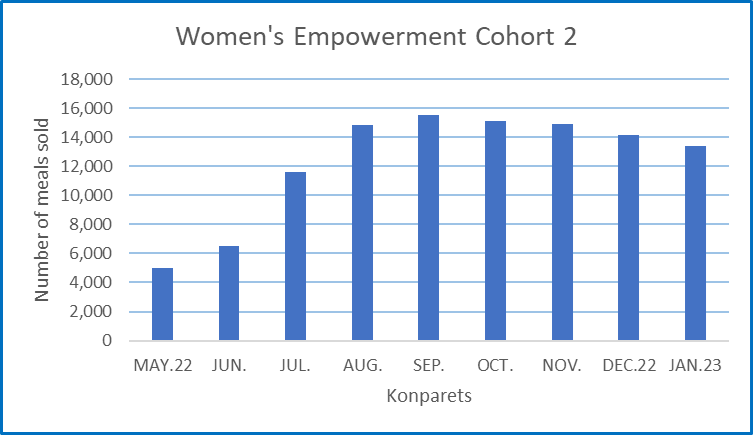The Women’s Empowerment Program generates a steady income for women while building a marketplace that feeds people, creates jobs, and benefits the environment. TTFF provides initial support in the form of free breadfruit products for up to 30 women for 4 weeks, plus training material and guidance.
Participants become entrepreneurs, buying and selling on their own. Think of it as a loop within the community. Farmers, bakers, and vendors all make money without depending on foreign supplies or continued financial support.
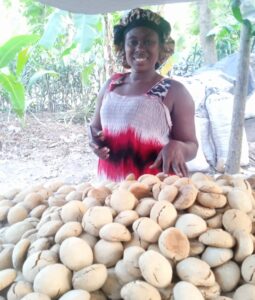
The products sold in this program are konparets, a nutritious and dense, cake-like bun made from a recipe with 25-75% breadfruit flour. It incorporates at least 25% of other locally sourced products such as coconut, mango, ginger, cassava, soursop, sorrel, and molasses. Any product used must have a reasonable shelf life and require no refrigeration.
No business succeeds without a well-trained sales force and fair financial structure. The local leader trains the women in sales and how to save and reinvest in more product. TTFF provides a training guide for the leader covering economics, nutrition, and environmental benefits. TTFF also provides an online document to be used for ongoing monitoring. Sales are recorded for each cohort for one year.
ONE YEAR REVIEW: JEREMIE BREADFRUIT NURSERY AND BAKERY
On December 21, 2021, Trees That Feed Foundation (TTFF) launched the Women’s Empowerment Pilot Program in Jeremie, Haiti, in collaboration with Jeremie Breadfruit Flour and Nursery (JBFN) and Haitian Connection.
Every three months, a new group of women started the program. We learned and adapted each time. Now with the input of four cohorts of participants, we can report on the challenges and opportunities of this initiative.
Regular communication with the leader, in this case Pierre-Moise Louise, owner of JBFN, paired with the results of our one-year review, provide us with valuable information on how to improve the program, which now employs 109 women.
An independent interviewer asked a sample of 32 participants five questions. One of the most common suggestions for improvement was expansion. As one woman said, “My advice for the program is that we find the possibility to help a lot more communities find the riches that we have discovered here.”
What We Learned
Many of the respondents said that consistency in the size, taste, and shelf-life of the konparets is very important.
- TTFF is now recommending that bakers adhere to a 3 oz sized product.
- We have also stressed that using the same recipe each time is imperative.
- When asked about the shelf-life of the konparet, most women told the auditor that they couldn’t be sure because they sell their products so quickly! Others commented that konparets will last 2 weeks as long as they are placed in the bags after cooling. TTFF has informed the bakers that cooling the product before packaging is crucial.
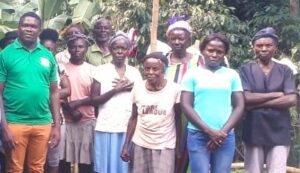
Training is effective, and it can be improved.
- 100% of the respondents understood the nutritional benefits of products made with breadfruit flour. They were pleased that konparets are all-natural, provide vitamins and minerals, and help bones, blood sugar, and more.
- Haitian Connection suggested that we expand our training on financial literacy. We are now update our training documents.
- An NGO with whom we are partnering on their first cohort, The Haiti Tree Project, requires its participants to make a small deposit the second, third, and fourth week they receive free konparets. This is credit the women can use to purchase konparets in the future. We love new ideas and encourage organizations to make the program their own while following the basic guidelines.
The program is creating income.
- 100% of the women surveyed said that the program helps them financially. One commented, “The benefits come to you fast and suddenly you have choices!”
Selling at schools exclusively is a risk.
- Some of the women were inclined to sell at schools only, so when the schools closed, these vendors stopped purchasing the product.
The bakery must be easily accessible to the women in the program.
- Transportation is challenging in Haiti. It is best if participants can walk to the bakery.
Who Participated
These women vendors range from 19 to 69 years old. They have between 0 and 9 children. Successful participants have shown fortitude as they encountered unforeseen challenges, such as currency fluctuations, political unrest, and natural disasters.
Results by Cohort
Of the 24 women in the pilot program, a total of 15 continued the program after the first year.
- 6 started their own bakery and continued selling.
- 9 others continued buying from JBFN and selling on their own.
- 9 did not finish the year because of school closures or other reasons.
Of the 25 women in the second cohort, a total of 21 have continued the program.
- 5 went with the first group who started the new bakery.
- 16 others continued buying from JBFN and selling on their own.
- 4 stopped purchasing konparets because of school closures.
Of the 30 participants in the third cohort, 100% continued the program.
Of the 30 participants in the fourth cohort, 100% continued the program.
Here is a look at konparets and breadfruit flour purchased by the first and second cohorts of vendors over the first year.
Our Ask
Trees That Feed Foundation wants to help other NGOs with reliable local partners run a Women’s Empowerment Program. As stated above, TTFF will supply initial support in the form of free breadfruit products for up to 30 women for 4 weeks, plus training material and guidance.
Contact us at info@treesthatfeed.org.

